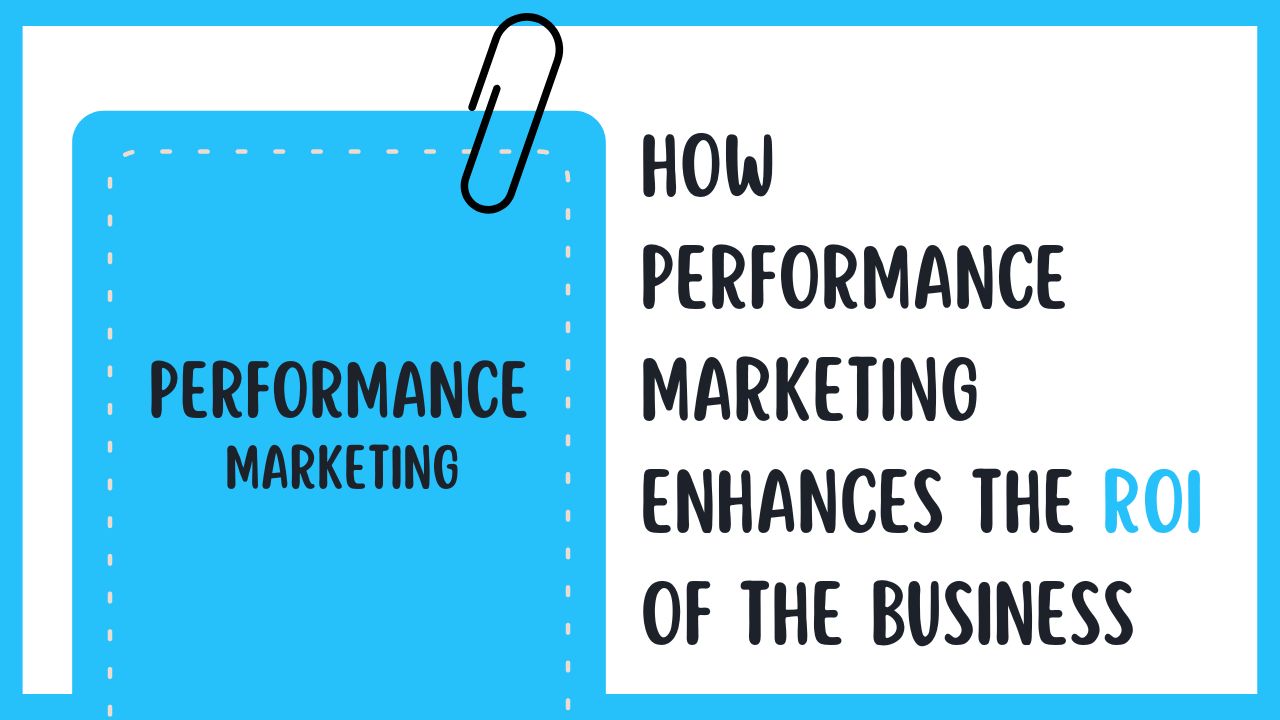In today’s competitive business landscape, companies are constantly seeking effective strategies to maximize their Return on Investment (ROI). One such strategy that has gained significant popularity is performance marketing. With its focus on revenue and lead generation, performance marketing has become a crucial component of growth marketing, especially in the realm of paid marketing and search engine marketing.
In this blog post, we will explore how performance marketing can enhance the ROI of a business, unravelling its potential benefits and best practices.
What is Performance Marketing?
Performance marketing is an advertising strategy that aims to generate measurable results for businesses. Instead of relying on traditional marketing methods, where success is often measured in the form of impressions or reach, performance marketing solely focuses on quantifiable results. These results may include actions such as lead generation, sales, or conversions.
Revenue and Lead Generation
One of the primary objectives of performance marketing is revenue generation. By tailoring marketing efforts towards driving sales and conversions, businesses can directly attribute their marketing spend to revenue generated. This accountability not only provides valuable insights into the effectiveness of marketing campaigns but also helps optimize marketing budgets by allocating resources to the most profitable channels.
Lead generation is another crucial aspect of performance marketing. By leveraging various digital marketing channels, such as search engine marketing, social media advertising, or email marketing, businesses can capture potential customers’ attention and direct them towards initiating a sales journey. Since performance marketing focuses on measurable outcomes, marketers can closely monitor the lead generation process and make data-driven decisions to optimize campaigns for maximum ROI.
ROI Growth and Performance Marketing
The ultimate goal of any business is to consistently improve its return on investment. Performance marketing plays a pivotal role in achieving this goal by continuously optimizing marketing efforts to deliver better results. By closely monitoring key performance indicators, marketers can identify trends, performance bottlenecks, or areas of improvement, leading to a higher ROI over time.
Moreover, performance marketing provides marketers with valuable data and insights that can drive future decision-making. By analyzing metrics such as click-through rates, conversion rates, or customer acquisition costs, businesses can identify what works best and make informed decisions on allocating resources more efficiently. This cycle of data-driven analysis and targeted optimization fuels ongoing ROI growth.
Best Practices for Performance Marketing
To ensure success in performance marketing, businesses should consider implementing the following best practices:
- Clear and Measurable Goals: Clearly define the goals and metrics that align with business objectives. These goals can include revenue targets, lead generation quotas, or specific conversion rates.
- Targeted Audience Segmentation: Segmenting the target audience based on demographics, behaviors, or interests allows for more personalized and effective marketing campaigns, yielding higher conversion rates.
- Tracking and Analytics: Implement robust tracking mechanisms to monitor the performance of various marketing channels and campaigns. Utilize web analytics tools and attribution models to understand the customer journey and identify the most effective channels.
- Continuous Optimization: Regularly analyze performance metrics and adjust marketing strategies accordingly. Optimize ad placements, creatives, targeting techniques, and landing pages to maximize conversions.
- Data-Driven Decision Making: Rely on data rather than assumptions to drive marketing decisions. A/B testing, heat maps, and multivariate testing can help identify winning strategies and tactics.
- Collaboration and Adaptability: Foster collaboration between marketing teams and other departments within the organization to align strategies and goals. Adapt to market trends and change consumer behaviour promptly.
By adopting these best practices, businesses can fully leverage the power of performance marketing to enhance their ROI and drive sustainable business growth.
Conclusion
Performance marketing provides businesses with a results-oriented marketing approach, aligning marketing efforts directly with revenue generation and lead conversion. By focusing on measurable outcomes, optimizing campaigns, and making data-driven decisions, performance marketing enhances a business’s ROI and ensures continuous growth. With the ever-evolving digital landscape and the potential of various paid marketing channels, embracing performance marketing is increasingly becoming a necessity for businesses seeking a competitive edge.

